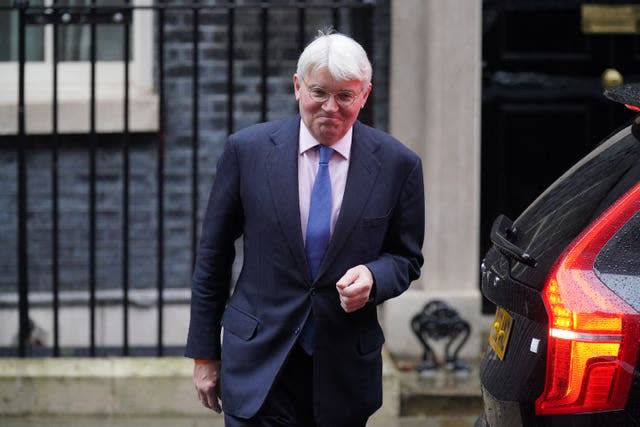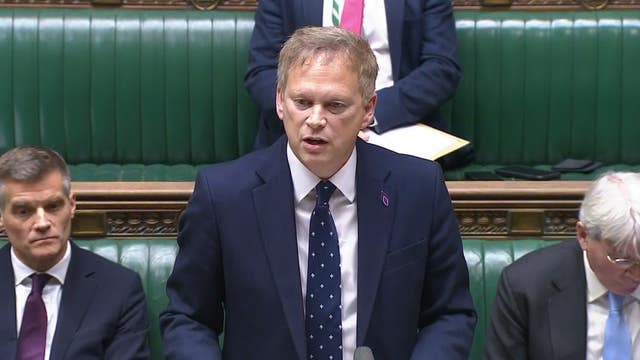Royal Navy amphibious assault ships will not be scrapped ahead of time, minister says
Two Royal Navy amphibious assault ships will not be scrapped or mothballed ahead of schedule, a minister has said following weeks of speculation about their fate.
HMS Albion and HMS Bulwark were reportedly being eyed for early retirement in order to free up sailors for other vessels, amid a recruitment crisis in the armed forces.
But Foreign Office minister Andrew Mitchell assured MPs that both ships will remain in service until their planned out of service dates in the early 2030s.

Meanwhile, Defence Secretary Grant Shapps said he was “working hard” to ensure the armed forces are not depleted, after being warned that military personnel are leaving faster than they can be replaced.
As MPs were given the opportunity to debate the UK’s airstrikes on Yemen-based Houthi rebels, Mr Mitchell confirmed the fate of the two ships.
Responding to questions about the ships, he said: “He asked me about the two LPDs, the landing platform dock Albion and Bulwark, and he asked for an undertaking that they will not be scrapped.
“I am able on behalf of the Government to give him that undertaking that neither of them will be scrapped.”
Sir Julian Lewis, the Tory chairman of Parliament’s Intelligence and Security Committee asked: “Would he like to confirm that HMS Albion and HMS Bulwark, whose planned out of service dates are 2033 and 2034 respectively, not only will not be scrapped ahead of time, but will not be mothballed either?”
Mr Mitchell responded: “He is absolutely right to determine the supportive view of the Secretary of State for Defence.”
Mr Shapps had earlier told MPs the Houthi’s attacks on merchant ships passing through the Red Sea were a “global problem” and had put “at risk” the vital trade route linking Europe to Asia via the Suez Canal.
He claimed the second wave of air strikes in which the UK took part on Monday had further degraded the Houthis’ “ability to hold our seas
to ransom”, and added: “We’re not aware that there were any civilian casualties and the operation was designed in that context.”

The Houthis have been attacking container ships passing through the Red Sea since November, claiming the vessels are linked to Israel in the context of the conflict with Hamas.
The UK and its allies have disputed this and say the attacks are indiscriminate.
Conservative former minister Mark Francois raised concerns about the armed forces’ recruitment crisis impact on the UK’ ability prepare for future threats against the UK as global risks escalate.
Mr Francois said: “I completely support the Government’s action, which is taken in accordance with international law and defending freedom of navigation on the high seas, but we can only do it with people, otherwise there is no-one to maintain the typhoons or to crew the warships.
“We now have people leaving three times as fast as we are recruiting, as the Secretary of State is aware.
“Can he give a commitment now he will come to the House before Easter to make a statement about what we are doing about retention of critical armed forces personnel? He knows why this is important.”
Mr Shapps replied: “He will be pleased to know that I have recently been holding meetings with individuals who he believes himself will help to resolve this issue.
“I am working very hard to make sure that in common with actually many Western militaries, armed forces, that we do have the men and women we need for our armed forces, skilled up to the right levels and capable of taking on this challenge.”

Mr Francois’s warning came as General Sir Patrick Sanders, the outgoing Chief of the General Staff, said in a speech that Britain should “train and equip” a “citizen army” to ready the country for a potential land war with Russia.
Ministers have in recent weeks highlighted rising tensions around the globe, with Mr Shapps himself warning of movements towards a “pre-war world”.
Elsewhere in the debate, senior Tory MP James Gray warned against demands that the Government hold a vote ahead of any future military action.
Liberal Democrat leader Sir Ed Davey was among MPs who had called for a vote on the RAF strikes, claiming it would lend the legitimacy of the Commons to the action.
But North Wiltshire MP Mr Gray claimed a vote would “emasculate” the House of Commons and make it difficult for MPs to scrutinise the Government.
Labour former shadow chancellor John McDonnell disagreed, and argued MPs should have a vote on the military action as he warned the Commons is “not taking its responsibilities seriously” given “we’re on the edge of real danger” in the Middle East.


